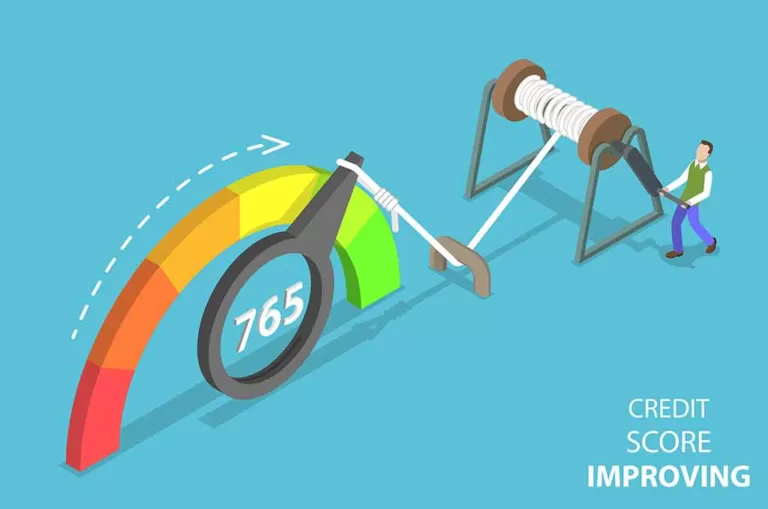Credit is one of the most essential necessities to have in this day and age. Credit scores are calculated in several ways, and understanding what exactly impacts and how it impacts your credit can save you some time if you’re looking to improve your credit score fast. So, how to improve your credit score fast?
There are at least 5 main categories that are factored into how well your credit score is; Payment History, Amount Owed, Credit History, Credit Mix, and New Credit.
Check out myFICO.com to get a better idea of what each of these categories represents. New Credit stands at the bottom of the list, only affecting 10% of your credit, so why bother focusing on this seemingly unimportant factor?
Well, despite being one of the lowest impactful categories, New Credit affects all the other categories in a way that if done correctly, can help to improve your credit score fast drastically. Let’s take a look.
How You Can Improve Your Credit Score Fast With New Credit?
1. Payment History
Payment History stands as the highest impactful category on your credit score. Standing at 35%, Payment History involves paying your bills on time. You’d think this would be easy to do, but what if something comes up and you end up missing a payment? You could end up seeing your credit score slipping from a 700 to a 650 in no time at all.
So how exactly does new credit help with missed payments? Payment History takes a few things into account when calculating
- Types of Accounts
- Public Record
- Number of past due items
- Amount of time that’s passed for undue payments
- The number of accounts that are on your credit
Best Websites To Check And Build Your Credit Score
Notice that last bit there? one single missed payment on an account can lower your score dramatically: missing 90 days can get you banned from acquiring certain loans, anything longer than that, and you should expect to hear from a collector soon. The number of accounts acts as a buffer for delinquencies, so one late payment on credit with multiple accounts won’t hurt you as bad. Of course, you always need to pay your bills on time and keep out of trouble, but having that extra security with new credit, when necessary, is good to have in a pinch.
2. Amount Owed
Amount Owed is responsible for impacting 30% of your score, and is, in general, the amount of debt you owe on your account, or more specifically, credit utilization. This means that however much you’re using on your credit limit on all revolving accounts is factored into Amount Owed. There are a few things to consider how Amount Owed affects your credit.
- Amount owed on all accounts
- Amount owed on different types of accounts
- The number of accounts with balances
- Total credit line being used
Much like with Payment History, New Credit on the amount owed can act as a buffer. However, there needs to be an understanding that having a large Amount Owed on multiple accounts can still be detrimental to improving your credit score. Using less than 30% of your credit limit on all cards is ideal, so don’t think you have to run up a single credit card if, instead, you can scatter them across different cards, especially ones with higher limits. To get a better idea, if you have a $1,000 balance on one card, $2,000 on another and a $3,000 balance on the third one and each card has a $6,000 limit, then your utilization rate will be 33.33%. That’s a way better alternative than putting all that money on one card.
3. Credit History
This is where things get a little tricky. So, you’ve had an old account open for 4 years and your credit score is a whopping 750. You then decide that you need a new car and with that, a loan. You open your new account and decide to check your credit score only to see that it dropped 10 points. What happened?
Credit History takes up 15% of your credit score, and as the title suggests, Credit History is how long you’ve had accounts open. Much like with Payment History and Amount Owed, Credit History averages all accounts when calculating. Opening a brand-new account is always going to lower your Credit History in some way so to improve your credit score, it’s best to pay off the newest accounts first while still keeping your old accounts open. This is easier for people just starting out, opening multiple accounts, and keeping them active, but there are some things in life you just can’t control. Thankfully, Credit History only affects a small portion of your credit score, but at least you now know how New Credit can affect this percentage so you can plan ahead for any small hiccups along the way.
4. Mix Credit
Mix Credit and New Credit almost go hand in hand. Both affect only 10% of your credit score, and both are about having multiple accounts to improve credit. Mixed Credit is about having different types of accounts, such as –
- Revolving (credit cards, retail accounts, HELOC)
- Installment accounts (Mortgage, Student loans, auto loans)
Lenders like to see that you can manage different credit types. It goes without saying, you need multiple accounts to do this. Does this mean you need to open numerous loans in order to keep your score up? No! Seeing many open accounts could mean you are in financial distress and therefore, a risk to lenders.
Along with that, every time a new account opens, a creditor checks your report with a hard inquiry which can lower it, and last up to two years on your report. Too many accounts are not good to improve a credit score, so it’s up to you to figure out the balance you need to keep your score in good standing.
By itself, New Credit doesn’t seem like much but looking closer, you can see that it has a lasting effect on all other impacts that are either positive or negative.
Conclusion
Understanding how to improve your credit score fast can help you create your own strategy to improve your credit score fast and keep it maintained. Check out Credit Karma to see an overview of your credit score so you can better understand what’s affecting it the most.












